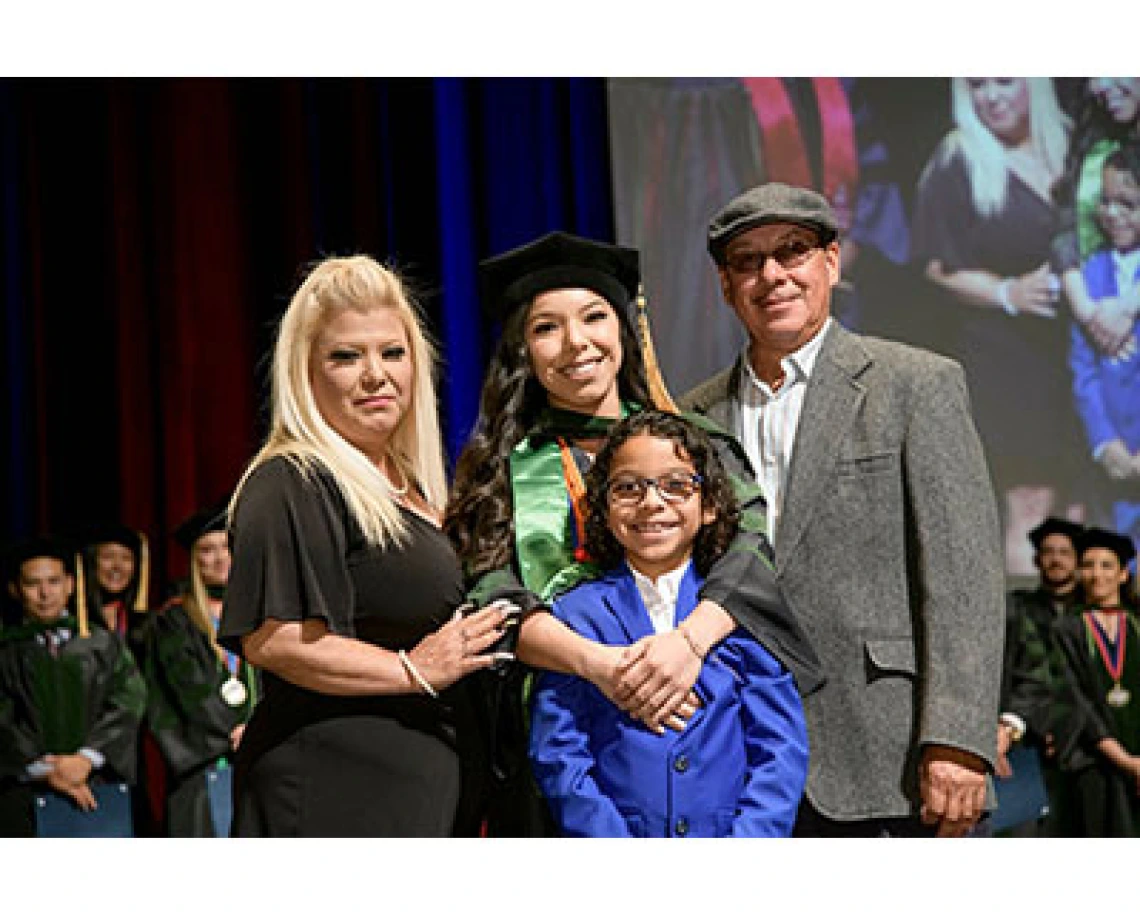For Students Who Have Overcome Challenges, Pathway to Medical School Program Demonstrates Success
The first students to participate in the Pre-Medical Admissions Pathway (P-MAP) program — an intensive medical school prep program for those who have faced greater-than-average challenges — have graduated from the UA College of Medicine – Tucson and becom

Five years ago, the University of Arizona College of Medicine – Tucson launched a new pathway to medical school. Named the Pre-Medical Admissions Pathway (P-MAP) program, its purpose is to assist students interested in pursuing medicine, but who may have faced educational and economic challenges in their journey to medical school.
This May, the P-MAP program celebrated the first of many milestones to come. The first students to participate in the program earned medical degrees and officially became physicians. The six graduates — four Native Americans and two African Americans — demonstrate that the pathway program is a successful and worthwhile endeavor, says P-MAP Director Tanisha Price Johnson, PhD.
“All of our P-MAP graduates identify with a group that is historically underrepresented in the physician workforce,” Dr. Johnson says. “That’s the goal of this program—to help students achieve their dreams. They are each very intelligent and P-MAP gave them opportunities they may not have had on their own.”
The P-MAP Class of 2019 medical school graduates are:
Mohamed Abdelhabib, MD
Mohamed graduated with distinctions in community service, rural health and global health. As part of the UA Rural Health Professions Program (RHPP), he worked with patients in small towns throughout Arizona to better understand social and medical issues in rural locations. Mohamed will pursue training in internal medicine at the UA College of Medicine – Phoenix.
Jeremey Gneck, MD
Jeremey is a recipient of the college’s Stoklos Foundation Award, which provides financial, intellectual and academic support to medical students who are American Indians or Alaska Natives. While in medical school, Jeremey participated in the college’s medical student research program. He will pursue his training in pediatrics at the College of Medicine – Tucson.
Lacy Manuelito, MD
Lacy grew up in Fort Defiance, Ariz., on the Navajo Reservation. She is the first in her family to graduate from college, holding a bachelor’s degree in family relations and human development from the UA. Lacy graduated from the College of Medicine – Tucson with a distinction in community service and rural health. She is a recipient of the college’s Philip Dew Award for Excellence in Pediatrics, which is in honor of one student’s success and desire to pursue a career in pediatrics. Lacy will train in pediatrics at the UA College of Medicine – Tucson.
Marisela Mariscal, MD
Marisela is a member of New Mexico’s Pueblo Laguna tribe and also of Hispanic descent. Raised in Tucson, she is the first in her family to obtain a college education, holding a bachelor’s degree in physiology from the UA. As a medical student, Marisela participated in the college’s rural health and community service distinction tracks, as well as the bilingual medical Spanish program. Marisela will specialize in family medicine and receive her residency training at the College of Medicine – Tucson South Campus.
Odinaka Mogor, MD
As a medical student, Odinaka pursued a distinction in rural health and community service. Many of his volunteer hours were spent helping the elderly in Tucson. Odinaka is a recipient of the Dean’s Special Achievement Award, which is awarded to one student for academic achievement in the face of considerable adversity. Students who receive this award are described as “persistent, tenacious and determined.” Odinaka will specialize in obstetrics and gynecology and pursue his residency training at Las Palmas Del Sol Healthcare in El Paso, Texas.
Sylvestor Moses, MD
Sylvestor is a member of Arizona’s San Carlos Apache Tribe who formally worked as an academic counselor and teacher on his reservation. Today, Sylvestor holds a doctorate in biochemistry and molecular and cellular biology from the UA. Sylvestor will pursue residency training in internal medicine at the College of Medicine – Tucson.
P-MAP is open to Arizona residents, with preference given to those who are socioeconomically disadvantaged, are first-generation college students, who grew up in rural or border communities or are registered members of federally recognized tribes. Preference also is given to students who speak Spanish or an indigenous language, the languages most commonly spoken by underserved populations in Arizona.
Upon successful completion of the rigorous one-year program, students earn a master’s degree in cellular and molecular medicine from the UA and automatically are accepted into the UA College of Medicine – Tucson.
For Victoria Murrain, DO, deputy dean for diversity and inclusion, this year’s P-MAP graduates reflect the college’s dedication to increase the diversity of its students.
“National initiatives address the lack of diversity among physicians; it’s a big problem. But I am proud to say that according to the Association of American Medical Colleges, the UA College of Medicine – Tucson is leading the way among medical schools to recruit and support Native American students,” Dr. Murrain says. “Our pipeline program is a huge contributor to this success. And we aren’t just helping Native American students; we are helping Hispanics, African Americans, first-generation college students, the socioeconomically challenged — and many others to truly create a workforce that reflects the diversity of the United States”
About the UA College of Medicine – Tucson
The University of Arizona College of Medicine – Tucson is shaping the future of medicine through state-of-the-art medical education programs, groundbreaking research and advancements in patient care in Arizona and beyond. Founded in 1967, the college boasts more than 50 years of innovation, ranking among the top medical schools in the nation for research and primary care. Through the university's partnership with Banner Health, one of the largest nonprofit health-care systems in the country, the college is leading the way in academic medicine. For more information, please visit medicine.arizona.edu.
Follow us: Facebook | Twitter | Instagram | LinkedIn

